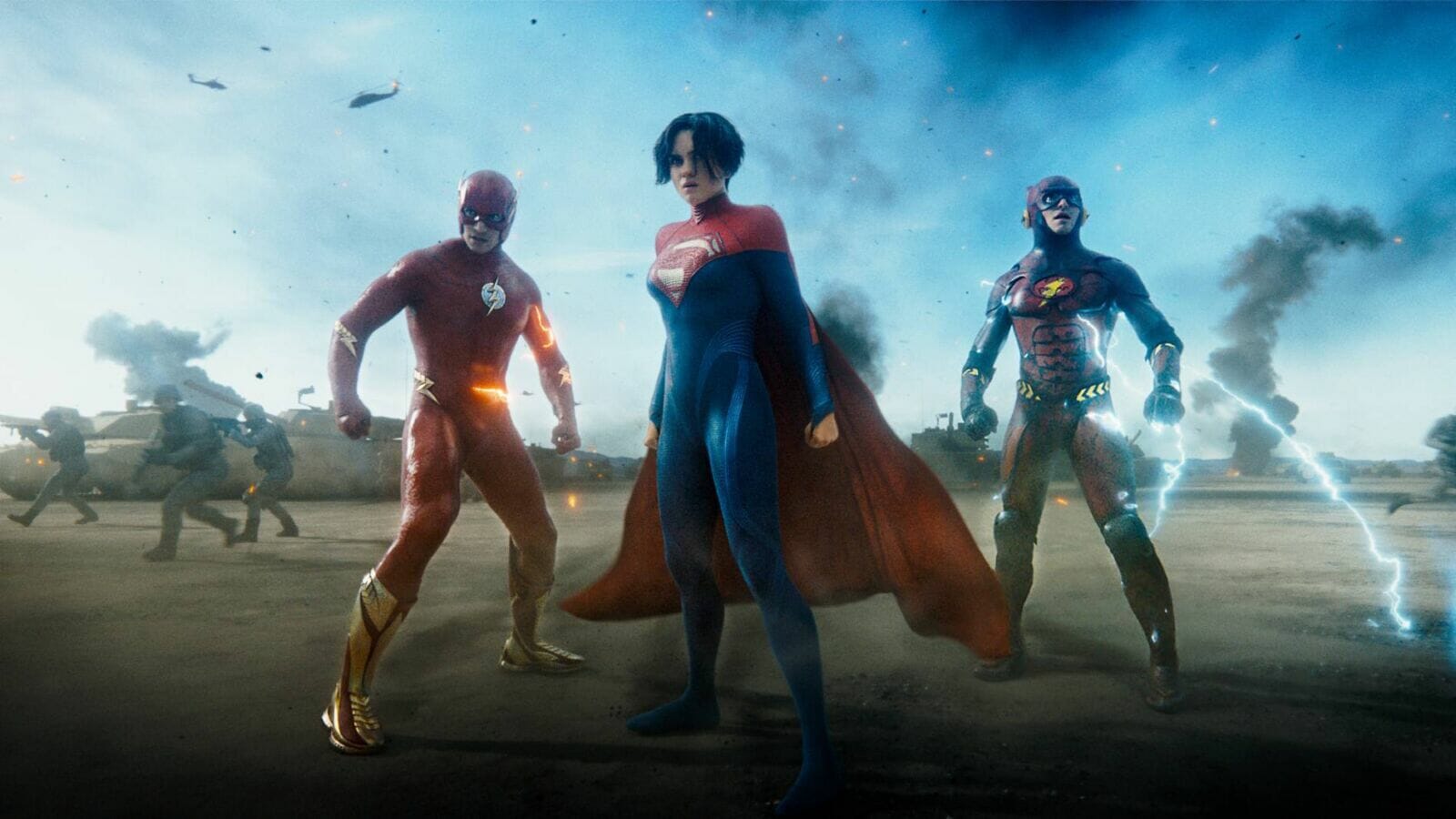There’s been a lot of pretending around The Flash. WB is pretending the crimes of star Ezra Miller—of which child endangerment is one of the lesser offenses—are a press campaign away from dodging all scrutiny. The first critics to screen the film (usually not an impartial bunch) are pretending it’s a masterwork; DC Studios head James Gunn called it “one of the best superhero movies I’ve ever seen.” Close your eyes and it’s the blockbuster event of the year.
READ ALSO: Read all of Ryan Bordow’s movie reviews here
DEEPER DIVE: Here’s how Arizona film incentives could attract filmmakers
But even squint and the edges fray fast. This is a movie that revives Michael Keaton’s Batman after Keaton starred in a Best Picture-winning satire mocking the very notion of him reprising the role. Audiences might not (and need not!) care, but the production team just pretending Birdman never happened is indicative of a parochial outlook. The Flash practically begs to be enjoyed in a vacuum—if Barry saves some babies, can you forget the kids Miller (allegedly) groomed? If the cameos are shocking enough, can you forgive their creative bankruptcy? You’re not tired of the multiverse, right?
And yet, despite the gnawing context, The Flash hits the screen with confidence. After Barry discovers time travel by running real fast, he resolves to go back in time and save his mother (Y tu Mamá También’s Maribel Verdú, to the delight of few in The Flash’s audience), of whose murder his father was accused. This, unsurprisingly, goes wrong, and altered timeline hijinks ensue. The tone is nailed straightaway: small-scale concerns (I miss my mom!) set against large-scale stakes (the multiverse is unraveling!) bridged by a zany, madcap heart. The script’s wink-wink, rules-off spirit, driven by Miller’s frantic, yelping energy, whirls the details of the plot into noise—a staging ground for fun ideas—while leaving ample room for character work. It’s not unlike Across the Spider-Verse in that way (among many others), but where Spider-Verse angles for metatext, The Flash goes full playground.
When it tries for subtext, it’s much less convincing than its multiversal peers. An early flashback makes a laughably stilted attempt to sum up the film’s message: as kid Barry struggles with tricky math homework, his mother says to him softly, “Not every problem has a solution; sometimes you just have to let go,” achieving a level of strained seriousness no one has ever brought to algebra. Early action scenes fare better— the VFX are barely passable, surprise surprise, but director Andy Muschietti likes to frame the heroes in wide shots, capturing how their bodies twist and exert in powerful tandem and maintaining their sense of movement through a tangible larger world. The score, courtesy of Benjamin Wallfisch, is gleaming with excitement, an interpolation and worthy successor of Elfman’s work in the genre. Combine those thrills with the script’s screwball comedy—60% funny, 30% harmless, 10% unbearable cringe—and you’ve got a genuinely charming adventure.
At least for the first 90 minutes. The third act is a wasteland of thematic vacuity, dumbed-down drama, and insipid visual drab. Setting the climax in a bland expanse of desert is a bewildering choice—it’s like a video game tutorial liminal space, the enemy army a smear of copy/pasted soldiers across dust and flat ground. Any sense of geography or momentum is obliterated. There’s an extremely predictable twist, a procession of big cameos, and more laughably pithy talk about learning to just let go. The character work pays off, but you’ve known where it’s going for hours. Marred by its last act, The Flash is a gradual slide toward the slightest version of itself.
The finale loops around to what worked early on, but by then, the film will be leaving your memory like you’re mid-Spotless Mind. Beyond the third act, though, it’s enjoyable while it lasts—the nostalgia is potent and the performances committed. At the very least, it’s fun to pretend.
★★★ (3/5)




